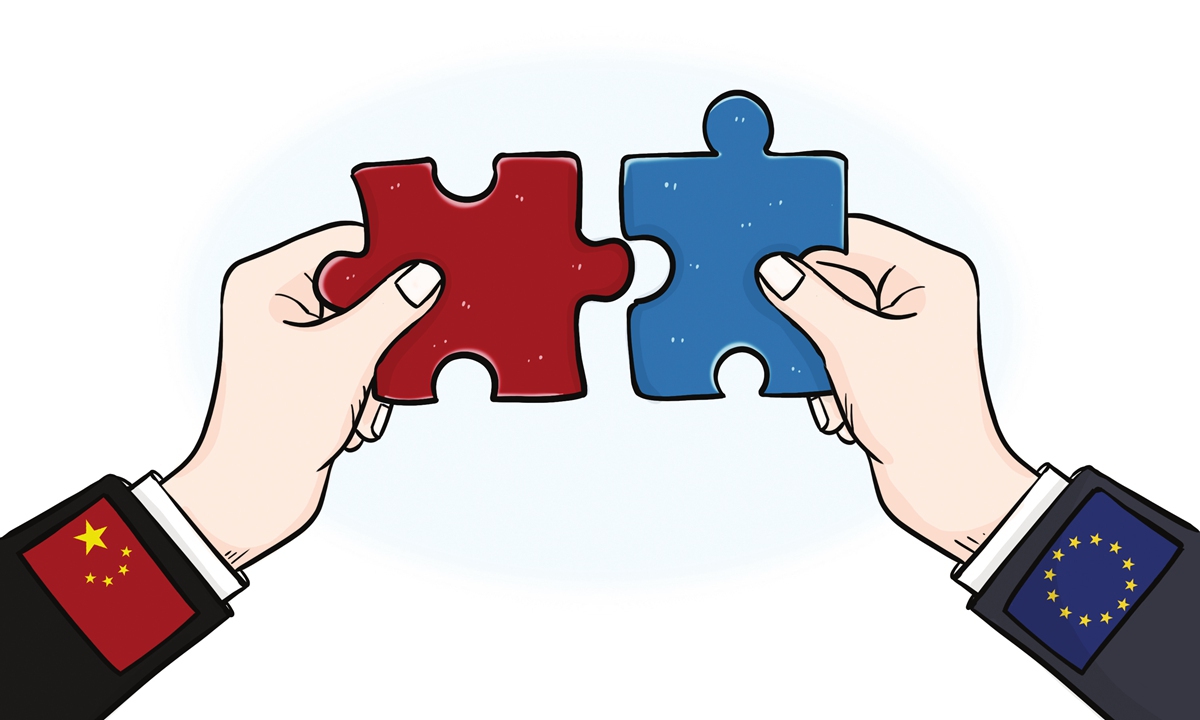
China EU relations
President Xi Jinping had phone calls with French President Emmanuel Macron and German Chancellor Friedrich Merz on Thursday and Friday, respectively. Notably, the two calls took place against the backdrop of the 50th anniversary of China-EU diplomatic relations, the 80th anniversary of the victory of the World Anti-Fascist War, and mounting challenges to the international economic order posed by rising trade protectionism.
During his phone conversation with President Macron, President Xi emphasized that China and France, as two permanent members of the UN Security Council, independent major countries, and founders and builders of the postwar international order, need to be reliable, open and progressive forces for maintaining international order, promoting global growth and guiding multilateral cooperation. In fact, the emphasis on being "reliable, open and progressive" forces carry profound significance for guiding the sound and stable development of China-France and China-EU relations in the future, as well as for jointly safeguarding and advancing global stability, progress and prosperity.
First, it is vital to maintain the existing international order. Today's international order is centered on the UN system, and its core principles are clear: All members shall refrain in their international relations from the threat or use of force against the territorial integrity or political independence of any State; international affairs should be governed by universally recognized rules and the spirit of international law; and the sovereign equality of all members must be respected.
However, the current international order is facing serious disruptions. Certain countries show little regard for the authority of the UN, abuse the privileges of permanent membership in the Security Council to undermine international consensus and fail to respect the sovereignty of other nations. China and Europe are key forces in upholding the post-WWII international order. In the face of growing actions that threaten this order, both sides have a responsibility to defend it - not only as the best way to honor those who sacrificed their lives during the war but also to ensure lasting global peace and stability.
Second, openness is essential for promoting global growth. The economic prosperity of both China and European countries has fundamentally stemmed from their commitment to openness. Since China launched its policy of opening-up to the outside world, its economy has entered a fast track of development. As a developed region, Europe's foreign trade and investment have not only benefited other countries but also contributed to Europe's own long-term prosperity.
However, the current international economic order based on openness is being seriously undermined by mercantilist thinking and protectionist policies. For example, Washington's reckless launch of tariff wars against other major economies has posed a grave threat to the normal interaction of the global economy. In addition, the uncertainty of Washington's foreign policy and its underlying mercantilist mind-set will continue to disrupt the future international economic order.
As economies committed to openness, both China and Europe need to jointly respond to unilateral protectionism and economic coercion. This includes restoring the authority and functionality of the WTO, actively promoting openness among major international economies, supporting each other's construction of external free trade zones and advancing a new round of economic globalization with an even more open posture.
Lastly, addressing these challenges urgently requires strengthened multilateral cooperation. For a long time, multilateralism has been a key principle shared by China and European countries in addressing international issues. However, following Washington's lead, a few powers have arbitrarily withdrawn from important international organizations and multilateral mechanisms, resulting in stagnation or significant challenges in global governance efforts in areas such as climate change, nuclear non-proliferation, international trade dispute resolution, education and talent development.
Therefore, China and European countries must work together to restore the authority of multilateral mechanisms - particularly the UN - at a time when such institutions are being undermined. Opposing unilateralism and hegemonism is essential to safeguarding global stability and addressing worldwide challenges.
The author is director of the Center for China-Europe Relations at Fudan University and deputy secretary-general of the Shanghai Institute for European Studies. opinion@globaltimes.com.cn

